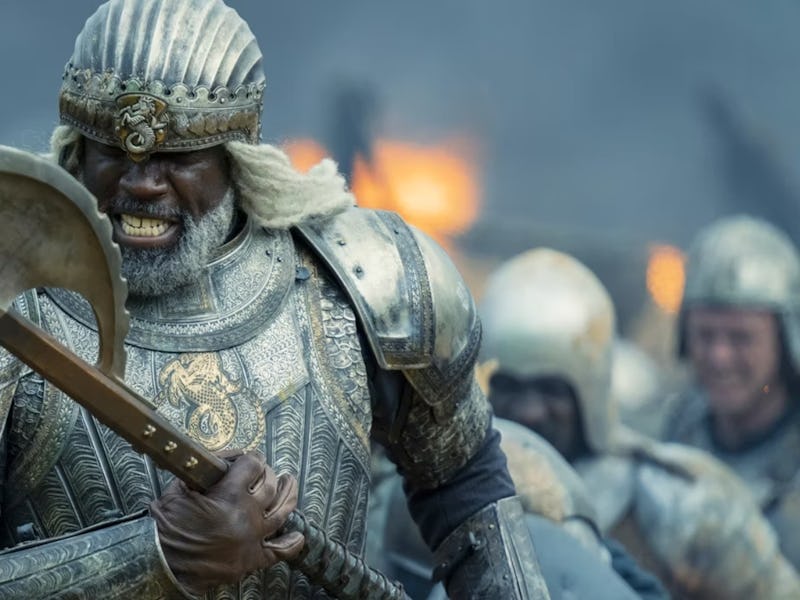HBO Is Fixing Its Biggest Game of Thrones Spinoff Problem
Compromise is necessary to survive in a brutal streaming environment.

The fate of HBO’s Game of Thrones universe has been up in the air for some time. After a tumultuous merger between Discovery and HBO parent company Warner Bros., and a pair of historic Hollywood strikes, the franchise’s many planned spinoffs are still languishing in development limbo.
But not all hope is lost for Thrones fans. Hollywood studios and streamers have struck a deal with writers and actors, meaning work can resume on the spinoffs that still survive. Most of them — like the yet-untitled Jon Snow sequel series, or the prequel following House of the Dragon’s Corlys Velaryon — have yet to get the green light. According to George R. R. Martin, however, adjustments have been made to give one of the franchise’s riskier stories a higher chance of survival.
Corlys Velaryon’s prequel series, Nine Voyages, is still in development, but not in the form you expect.
Martin frequently updates Game of Thrones fans via his blog, and a recent post offered details about the Corlys Velaryon series. Tentatively titled Nine Voyages, the prequel will follow the “Sea Snake” on a series of legendary nautical adventures. While previously pitched as a live-action series, Martin confirmed production has made a surprising pivot to animation.
The transition from live-action to animation is a move Martin “fully” supports: “Budgetary constraints would likely have made a live action version prohibitively expensive, what with half the show taking place at sea.” Martin continued:
“The necessity of creating a different port every week, from Driftmark to Lys to the Basilisk Isles to Volantis to Qarth to… well, on and on and on. There’s a whole world out there. And we have a lot better chance of showing it all with animation.”
A live-action Velaryon spinoff could have easily been HBO’s most expensive.
While HBO is putting a lot of faith in its growing Thrones-verse, Warner Bros. Discovery has become infamously tightfisted. Streaming platforms are struggling to make money, which means it’s getting harder and harder for projects in the pipeline to secure big budgets, or move forward into development at all.
Sea-faring shows can be especially costly. Netflix’s recent adaptation of One Piece is of the most expensive series ever made, with its eight episodes averaging $18 million each. That’s only slightly less than the $20 million HBO shelled out for each episode of House of the Dragon. With so many other Thrones spinoffs vying for the green light, dropping big bucks on all of them isn’t a sustainable strategy.
A scaled-back production doesn’t necessarily mean a less ambitious one, and making smart cuts might be the only way for Martin and his co-creators to get as many Thrones projects off the ground as possible. One prequel already met its demise so House of the Dragon to live (remember The Long Night? No?), so a more frugal approach to the franchise could prove better in the long run.